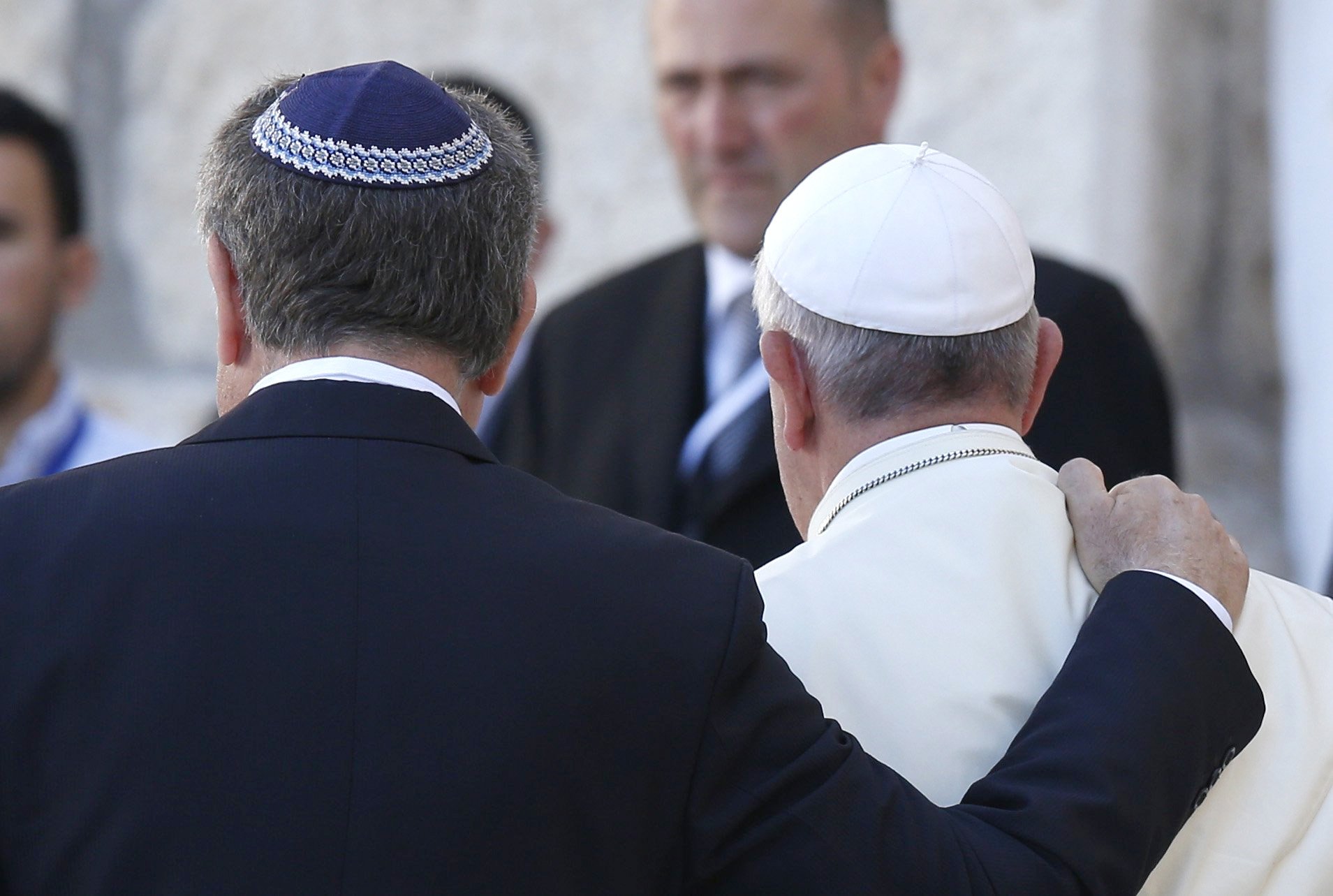
By Gina Christian
(OSV News) — Several U.S. bishops are extending greetings to the Jewish community as its members celebrate Passover (Pesach), which commemorates the divine liberation of the ancient Israelites from enslavement in Egypt as recounted in the book of Exodus.
“Passover is a time of thoughtful reflection and celebration, as you commemorate the exodus of the Jewish people from the bonds of slavery in Egypt to the freedom of the Promised Land,” said Bishop Edward C. Malesic of Cleveland in an April 5 message. “We celebrate with you the goodness of Almighty God, and as we look together to this season of hope and rebirth, may we continue to be inspired to liberate those bound by hate, racism and war.”
Archbishop Nelson J. Pérez also sent his “warm greetings” April 5 writing, “this great feast commemorates the miracle of divine intervention in an hour of darkness,” which reminds all that God “will liberate us just as he liberated the Jews from Pharaoh’s enslavement, and that the pathway to true freedom is guided by the divine.”
This year, Passover began on the evening of April 5 with the first seder, a ritual meal commemorating the events of Exodus, followed by a second one on April 6 for most Jews outside of Israel. Following a traditional sequence set down by Jewish rabbis in the fifth and sixth centuries, the seder (from the Hebrew word for “order”) recalls the events of the Israelites’ captivity and deliverance through symbolic foods, wine, Scriptural passages, prayers and songs.
The holiday will end on the evening of April 13 for most Jews in the diaspora, while those in Israel, as well as some Reform Jews, will conclude Passover on April 12.
This year, Passover coincides with the Paschal Triduum, marking an opportunity for increased solidarity between Jews and Christians, said Cardinal Wilton D. Gregory of Washington and Catholic co-chair of the National Council of Synagogues consultation for the U.S. Conference of Catholic Bishops (USCCB), and Rabbi Abraham Skorka, senior research fellow for Jewish studies and Jewish-Catholic relations at Georgetown University.
Cardinal Gregory and Rabbi Skorka issued a joint statement April 5 titled, “When Passover and Easter Coincide: A Shared Message of Hope,” noting that “as a Jew, Jesus would have celebrated Passover yearly with his family and friends.”
Both the Jewish and Christian faith traditions emphasize human dignity and freedom, which believers must work to ensure for all, said Cardinal Gregory and Rabbi Skorka.
“The seasons of Passover and Easter are an opportunity for all people, not just Christians and Jews, to renew their concern for the freedom of every person,” they said.
That task has taken on new urgency, they said, as “human dignity is being violated in wars, poverty, enslavement and apathy around the world.” Racism continues to “(fuel) antisemitism, Islamophobia, and discrimination of all kinds,” they said.
Antisemitism in particular has been on the rise in the U.S., reaching in 2022 what the Anti-Defamation League (ADL) recently called “historic levels” — up 36% from the year prior, the highest level since the group began tracking incidents in 1979. Similar spikes have been noted globally.
Speaking April 3 on the USCCB’s “Catholic Current” news program, Bishop David P. Talley of Memphis, chairman of the USCCB’s Ecumenical and Interreligious Affairs Committee, stressed that Jesus, “Yeshua,” was “a devout Jew” who was (as Col 1:15 describes) “the icon of the invisible God.”
“In order to find him and his face, I have to see his face in a Jewish context because he celebrated Passover and he remembered liberation,” said Bishop Talley. “He remembered what slavery was and what liberation is now because our Abba, our Father in Heaven, gives that to us.”
